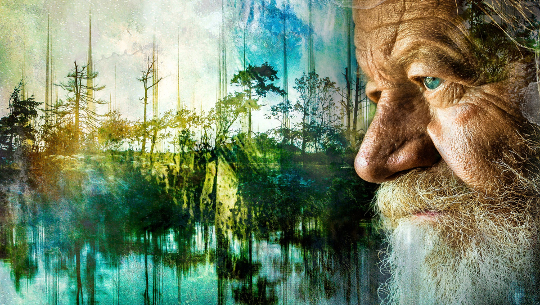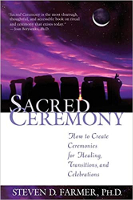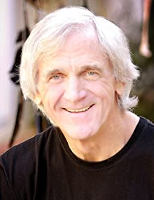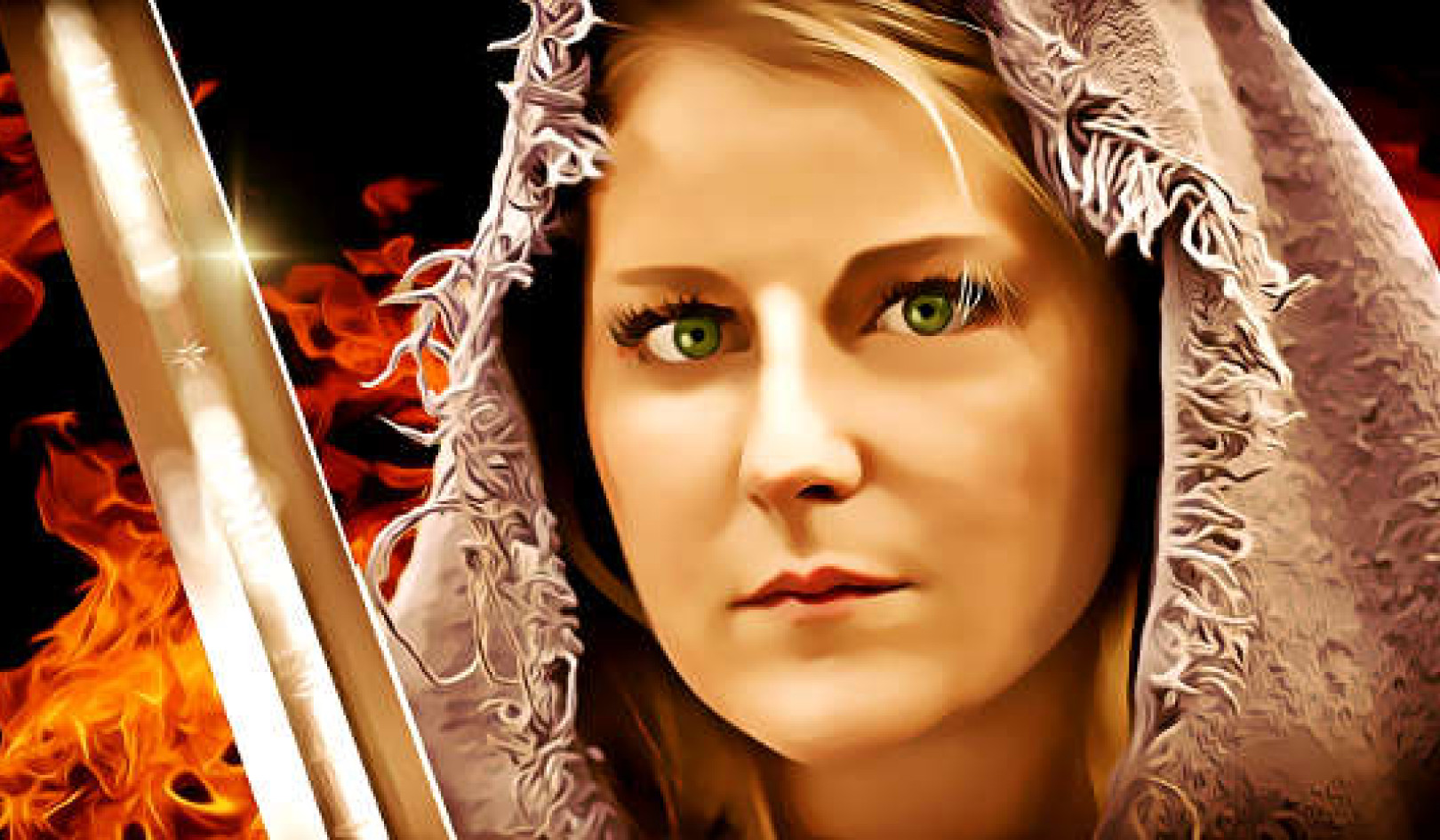
Image by Grae Dickason
Ah yes, in our youth-obsessed culture, the advancing specter of growing old becomes something to be tirelessly avoided. Perhaps because we're that much closer to the final passage, the fear and denial of death causes us to try to maintain the facade of youth in the face of the inevitable and gradual diminishment of our capacities. What's usually overlooked is the tremendous storehouse of knowledge and wisdom that we've accumulated, the gifts we can give to subsequent generations.
Our society's beliefs about growing old don't honor the eldership status of our seniors. These beliefs become part of a person's indoctrination, so they may slip into a sense of powerlessness and resignation. Challenging these beliefs by remaining active and curious about the world, making learning and education a top priority, and staying involved in family and community can help someone approach this transition and era with greater enthusiasm and acceptance.
Major Tasks of Late Adulthood
In this passage into the later stage of life, we're faced with three major tasks. These are managing loss, recapturing innocence, and fostering generativity. How we approach and deal with these tasks will help determine our wellbeing and vitality.
Managing loss -- As we enter the twilight phase, one of the main tasks we're confronted with is learning to manage loss. Some of the challenges we must face are retirement from a career, with its ensuing loss of status and power, as well as the loss of a nearly lifelong identity with work. Another marker of this era is the lessening of vitality and stamina, as well as for some, a decline in health and the ability to recuperate from illness. Also, this is the time when we're more likely to lose friends and relatives to death.
The good news is that we must somehow challenge the illusion of permanence, to stop identifying so strongly with the material world and deeply explore the mysteries of the eternal, in order to find our true identity in Spirit. This is one of the keys to successfully dealing with loss, as well as gaining in wisdom.
Recapturing innocence -- Time to play, time to learn, time to take long walks on the beach or just be -- once a person has traversed this late-adulthood passage, they've typically given up a number of responsibilities and obligations and have more choices as to how to spend their time. There's now time to enjoy life, to travel, to involve themselves in creative and novel pursuits, and to enjoy their family, particularly their grandchildren. As an older friend once said to me, "Being older, you can get away with just being yourself, without having to make excuses."
For women in particular, going through menopause can mean an opportunity to come forward as one of the wise grandmothers of the community. This is a time when a woman can regain, or perhaps achieve for the first time, the sense that her life is her own. She can truly be herself without having to compromise, or be beholden to others' demands.
Fostering generativity -- Psychologist Erik Erickson, who defined the tasks of various developmental stages from birth to old age, suggests that this is the primary task for this period of life. If a person isn't "generative" -- isn't involved in promoting something larger than themselves, something that will benefit future generations -- then they face the risk of a tailspin into feelings of helplessness and despair.
Sometimes we're so impacted by personal, community, or world events that it prompts us to reevaluate our priorities, to take a direction that more fully incorporates new ethical and spiritual values that foster generativity. Such was the case with Gerald Levin, 62, CEO of AOL Time Warner. An article in Newsweek (December 17, 2001) described an epiphany he experienced following a visit to Ground Zero after the devastation of September 11, 2001. The article by Johnnie L. Roberts describes how Levin arrived at the decision to retire and pursue a different direction:
AOL Time Warner CEO Gerald Levin returned with his trusted deputy Richard Parsons from a tour of Ground Zero, devastated. Not since the 1997 murder of his son had Levin appeared as shattered as he did looking over the wreckage that September morning. "He seemed to almost cry when he talked about 9-11," says Sandi Reisenbach, a Warner Bros. studio executive.... But the devastation also seemed to infuse Levin with a new sense of purpose for his media empire. "Our commitment not to just build our business but to make a difference" is among the company's "unique resources," he proclaimed in a company-wide e-mail on Sept. 14. By early November, Levin was telling a gathering of investors that AOL Time Warner would spend heavily on its mission as a "public trust," even if that lowered profits. "I'm the CEO, and this is what I'm going to do," Levin also reportedly said. "I don't care what anyone else says."
But the real stunner came last week when Levin abruptly announced that he will retire next year ... the sudden resignation was neatly explained as the climax of Levin's recent spiritual metamorphosis. "My true DNA" is to serve "a passionate, philosophical, moralistic purpose," says Levin.
Levin's story -- and his "passionate, philosophical, moralistic purpose" -- captures the essence of one of the tasks of later adulthood.
Facing Your Mortality
This era also requires that we squarely face our own mortality. This doesn't have to be morbid or depressing, although it will certainly trigger some feelings and create an opportunity for deeper introspection. There's a type of Buddhism where a common practice is to meditate upon one's own death. Practitioners say that doing so makes you appreciate life that much more fully.
Robert Fulghum, in From Beginning to End: The Rituals of Our Lives, describes a ceremony in which he faced his eventual death in a poetic and elegant manner. On the opening page of one of the chapters is a black-and-white photograph of a man sitting in a chair in a cemetery, gazing out into the sky. It turns out that this is a picture of the author, although he initially describes what's going on in the third person, saying:
He is sitting on his own grave. Not because his death is imminent -- he's in pretty good shape, actually. And not because he was in a morbid state of mind -- he was in a fine mood when the picture was taken. In fact, he has had one of the most affirmative afternoons in his life.
Sitting for an afternoon on his own grave, he has had one of those potent experiences when the large pattern of his life has been unexpectedly reviewed: the past, birth, childhood, adolescence, marriage, career, the present, and the future. He has confronted finitude -- the limits of life. The fact of his own death lies before him and beneath him -- raising the questions of the when and the where and the how of it. What shall he do with his life between now and then?
Fulghum went on to describe how he'd discussed the considerations with his family, wrote out a will, detailed the funeral instructions, and filled out any forms that were necessary. I have found this sort of confrontation with mortality to be a courageous and perhaps even necessary encounter as a person moves into this later stage of adulthood.
An alternative ceremony to Fulghum's inspired piece would be to create a sacred space, preferably somewhere outdoors, away from your familiar environment. I suggest doing it outside, because that's where your remains will ultimately recycle. If you desire, follow Fulghum's model of doing this near where your body is to be buried or your ashes are to be scattered, but that's not necessary.
Take with you any sacred objects that seem appropriate, and a pen and some paper, then sage the area, if possible. Say a prayer to consecrate the space, asking for a blessing for what you're about to do.
Set up your altar, even if it's only a couple of objects sitting on a rock. Sit down and take a few minutes to quietly meditate on your life. Then, using your journal, write a life review. Take your time. In fact, if you don't finish during the actual ceremony, complete your review soon after. It's important. What have been the significant events that have shaped your life? Who have been the most influential people? Whom have you loved? How have you changed over time? Any regrets? Are there any people with whom you're still carrying a grudge? Write down the answers to these and any other questions until you've exhausted whatever you have to report.
Next, set this down and spend some quiet time letting what you wrote settle in. When that feels complete, write out your instructions in detail for your funeral and memorial, including what you would like the inscription on your gravestone to say. Let your feelings move through you as you write. Tears make for a good "soul cleansing," so if this happens, don't hold back.
Again, once you've completed this task, let your feelings settle. For many, this is one of the most powerful exercises you can do. And last but not least, assume that you have at least 20 or 30 years remaining. In your journal, write down what you want to do with the rest of your life. What is your mission? Is there a service you want to provide, or one that you're doing that you want to continue? What kind of contribution do you want to make, especially one that will benefit future generations? Like Gerald Levin, perhaps you'll want to serve with "a passionate, philosophical, moralistic purpose." If so, what would that be like?
Close the ceremony by drumming, rattling, and/or singing, followed by a prayer of gratitude for what you do have in your life. Make copies of your life review for your descendants, to be given to them after your passing. Go for it. Know that this will be a very healing ceremony.
Another option for leaving a legacy, one that can be introduced in a ceremony, is to do your life review on videotape. You can ask someone to help you with this, perhaps a friend to serve as an interviewer. Once you've done so, you can edit this into a one-hour "special." Similar to the written piece on your life review, you can give it to your children or make arrangements to leave it for them following your final passage.
There are myriad ways to create a ceremony for this passage, and it may be that you perform ceremonies intermittently throughout as a means of honoring this transition.
Reprinted with permission of the publisher,
Hay House Inc. ©2002. www.hayhouse.com
Article Source:
Sacred Ceremony: How to Create Ceremonies for Healing, Transitions, and Celebrations
by Steven D. Farmer, Ph.D.
 Now you can create and conduct your own meaningful ceremonies! Sacred Ceremony gives you clear and simple guidelines for designing and performing ceremonies for any purpose—from healing emotional or physical wounds to honoring important life passages and celebrating seasonal cycles. Steven D. Farmer, Ph.D., gives you a wealth of ideas and inspiration for generating your own unique ceremony for any situation, whatever your spiritual background or experience with ceremonies.
Now you can create and conduct your own meaningful ceremonies! Sacred Ceremony gives you clear and simple guidelines for designing and performing ceremonies for any purpose—from healing emotional or physical wounds to honoring important life passages and celebrating seasonal cycles. Steven D. Farmer, Ph.D., gives you a wealth of ideas and inspiration for generating your own unique ceremony for any situation, whatever your spiritual background or experience with ceremonies.
Click here for more info and/or to order this book. Also available as a Kindle edition.
About the Author

Dr. Steven Farmer is a psychotherapist and shamanic healer, the author of several best-selling books and oracle cards, including Animal Spirit Guides, Earth Magic®, Earth Magic® Oracle Cards, and the Children's Spirit Animal Cards, Healing Ancestral Karma and the recently released Shaman's Path Cards and Spirit Animals as Teachers, Guides, and Healers. In addition to workshops on Animal Spirit Guides, Integrative Breathwork, Healing Ancestral Karma, and shamanism. Dr. Farmer offers Integrative Healing sessions in person or remotely by phone, Zoom, or Skype, as well as an individualized Spiritual Mentorship program. He also offers a certification program, the Earth Magic® Practitioner training.
For more information about privates sessions, special events and workshops please visit his website: www.StevenDFarmer.com.

























